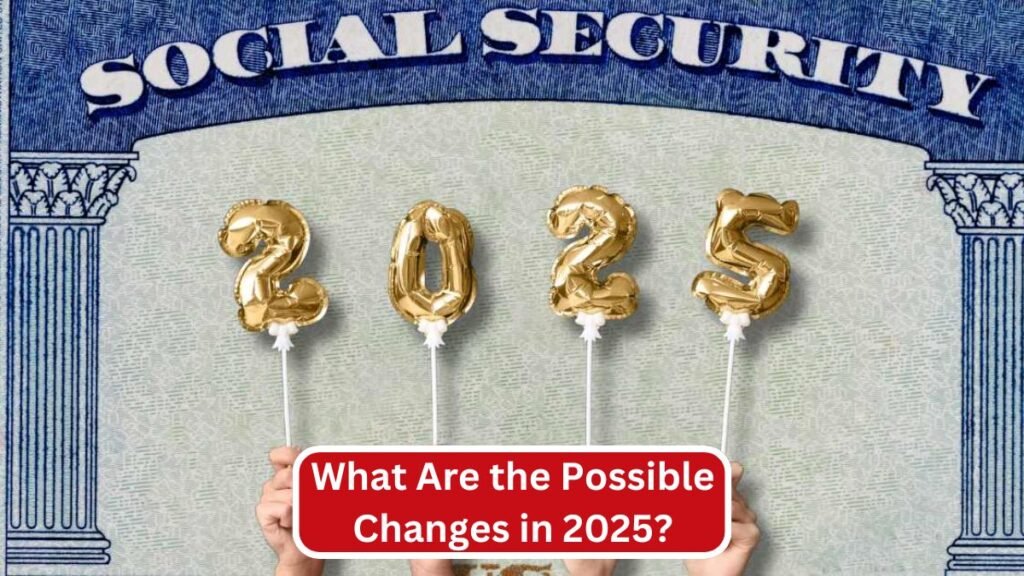Social Security benefits are crucial for millions of Americans, including immigrants who rely on them after years of contributing to the system. However, there are potential challenges ahead for immigrants receiving Social Security checks. In 2025, changes in eligibility rules or benefit reductions might impact how much they can collect. This guide breaks down these issues in a simple way, helping you understand how these changes might affect immigrants and what steps they can take to prepare.
What is Social Security?

Social Security is a government program in the United States that provides financial support to retired people, those with disabilities, and their families. People pay into the system through taxes during their working years. Once eligible, they receive monthly payments to help with living costs.
Why Are Immigrants at Risk for Social Security Cuts?
Several factors might cause immigrants to face benefit cuts:
- Insufficient Work Credits:
Immigrants need to earn a certain number of credits by working in the U.S. to qualify for Social Security benefits. If they haven’t worked enough years, they might not meet the eligibility criteria. - Residency Rules:
Some immigrants may lose benefits if they leave the United States. Social Security requires recipients to live in the U.S. for a certain time to collect full payments. - Changes in Government Policies:
Political shifts could result in new laws affecting how Social Security benefits are calculated or distributed, with non-citizens potentially impacted the most. - Economic Challenges:
Rising inflation and budget constraints could force the government to cut benefits, and immigrants might face disproportionate reductions.
What Can Immigrants Do to Protect Their Benefits?

Immigrants worried about Social Security cuts can take the following steps:
- Verify Work Credits:
Ensure you have enough credits from your working years in the U.S. - Review Residency Requirements:
If you plan to live abroad, check how it might affect your benefits. - Stay Updated on Policy Changes:
Follow news about Social Security and seek professional advice if needed. - Save Independently:
Consider building a retirement fund in case Social Security benefits are reduced.
| Topic | Details |
|---|---|
| Overview of Social Security | A U.S. government program providing financial support to retirees, disabled individuals, and families. |
| Expected Changes in 2025 | Stricter work credit requirements, adjusted benefits based on residency, and new rules for non-citizens. |
| Work Credits Requirement | Immigrants must earn enough credits through U.S. work history to qualify for Social Security benefits. |
| Residency Rules | Non-citizens may face restrictions or reduced benefits if they reside outside the United States. |
| Potential Benefit Reductions | Rising inflation and budget constraints may lead to benefit cuts, affecting immigrant beneficiaries. |
| Impact on Immigrants | Immigrants could lose benefits or receive reduced payments due to tighter eligibility rules. |
| Steps to Prepare | Verify work credits, review residency requirements, save independently, and stay updated on policy changes. |
| Government’s Reason for Changes | The U.S. government seeks to address Social Security sustainability amid economic challenges and budget deficits. |
| Support and Resources | Immigrants can consult the Social Security Administration (SSA) or financial advisors for guidance. |
| Key Actions for Immigrants | Monitor policy updates, ensure eligibility compliance, and plan alternative savings options for retirement. |
What Are the Possible Changes in 2025?

While the exact details are unclear, potential changes could include:
- Stricter work credit requirements.
- Adjusted benefit amounts based on residency.
- New rules for non-citizen beneficiaries.
These changes could reduce monthly payments for many immigrants, making it essential to prepare early.
FAQs
What changes to Social Security are expected in 2025?
Potential changes may include stricter work credit requirements, adjusted benefit amounts based on residency, and new rules for non-citizen beneficiaries. These changes could impact how much immigrants receive in benefits.
How will Social Security cuts affect immigrants in 2025?
Immigrants may face reductions in benefits if they don’t meet updated eligibility criteria, such as work credits or residency requirements. Non-citizens living abroad might see additional restrictions.
Can immigrants still collect Social Security benefits if they leave the U.S.?
It depends on the country they move to and whether new policies will affect non-citizens residing outside the U.S. Immigrants are encouraged to check residency rules and agreements between the U.S. and other countries.
What are Social Security work credits, and why are they important?
Work credits are earned by working and paying Social Security taxes in the U.S. Immigrants need enough credits to qualify for benefits. In 2025, stricter rules might make this more challenging.
How can immigrants prepare for potential Social Security changes?
Immigrants can prepare by verifying their work credits, understanding residency requirements, saving for retirement independently, and staying updated on policy changes that might affect their benefits.
Immigrants collecting Social Security checks in the U.S. may face unique challenges if benefit cuts occur in 2025. By understanding work credits, residency rules, and staying informed about potential policy changes, immigrants can take steps to secure their financial future. Building personal savings and exploring additional retirement options are smart ways to prepare for uncertainty.






















